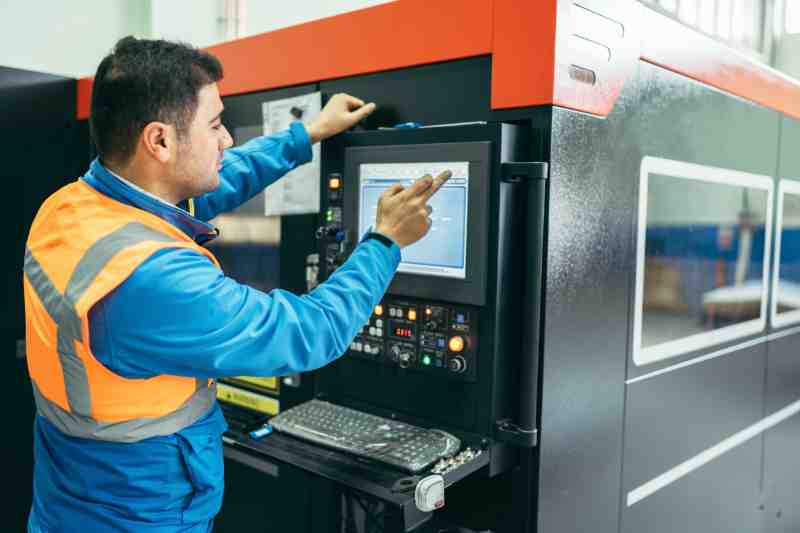Key takeaways
- A building operator ensures that a property’s critical building systems are running smoothly.
- To become a building operator, you need a building operator certification that validates your knowledge and skills.
- The objectives of a building operator are to analyze building data, track energy performance, and manage building systems.
- Four tips for better energy management are conducting energy audits, implementing energy-efficient practices, using smart building technology, and investing in access control.

A building operator certification empowers industry professionals to merge technology and sustainability for greener, more efficient buildings. As a result, building operators play a vital role in ensuring multifamily and commercial buildings run smoothly by tailoring a building operator experience to a property’s specific needs.
Read on to learn what a building operator is and how to become one. Then, explore the objectives of a building operator. Finally, discover four tips for better energy management.
In this post, we cover:
- What’s a building operator?
- How do I become a building operator?
- What are the objectives of a building operator?
- 4 tips for better energy management
What’s a building operator?
A building operator ensures that a building’s HVAC, electrical, mechanical, and plumbing systems work efficiently. In essence, they ensure that all critical building systems are working optimally.
What’s more, building operators are responsible for:
- Conducting routine inspections.
- Identifying property maintenance needs.
- Ensuring that all repairs are promptly addressed.
Moreover, a certified building operator creates a building walk-through plan that promotes measurable energy savings.
Building operators do this by:
- Monitoring energy consumption.
- Implementing energy-saving strategies.
- Suggesting upgrades to enhance a building’s overall energy performance.
How do I become a building operator?
To become certified as a building operator, you must complete a series of exams, classes, and assignments. Then, you can apply for a building operator certificate.
What’s more, safety and security certifications are crucial for building operator training. In fact, building operators must be OSHA-certified in order to accurately ensure that all safety protocols, emergency systems, and fire prevention measures are in place.
What are the objectives of a building operator?
Several objectives come into play when managing, maintaining, and optimizing a building’s systems.
Here are the main objectives of a building operator:
- Analyze building data. Building operators examine building management systems like heating, cooling, mechanical, and electrical equipment to ensure energy-efficient building operations. Then, they use that data to create a plan to ensure that the building’s systems operate smoothly.
- Track energy performance. Improving energy efficiency is a core aspect of being a successful building operator. Not only does finding ways to save energy reduce operating costs, but it also reduces a building’s carbon footprint.
- Complete assigned projects. A building operator is responsible for fulfilling all assigned projects. What’s more, building operators work with maintenance personnel to ensure that a building’s equipment is working efficiently, safely, and in accordance with all applicable regulations and standards.
- Manage building systems. Building operators maintain detailed records of maintenance activities, repairs, and any changes made to the building’s systems. Additionally, building operators may be involved in budget planning, including forecasting maintenance costs and managing expenditures.
4 tips for better energy management
Energy management utilizes sustainable practices and reduces operational costs, all while having a positive impact on the environment.
Here are four tips for optimizing energy consumption for all types of buildings:
- Invest in access control systems
- Conduct energy audits
- Implement energy-efficient practices
- Use smart building technology
1. Invest in access control systems
Access control systems offer real-time monitoring, control, and optimization of property-wide access. These systems also ensure property-wide safety and prevent unauthorized access while optimizing energy usage in secure areas.
Additionally, access control systems keep detailed logs of who accesses a building and when. What’s more, you can use this data to help determine how much energy tenants are using on a daily basis. These systems also integrate with smart building technology that automatically turns off lights and other systems when a room is unoccupied.
Moreover, cloud-based access control empowers owners to enable efficient management of multiple buildings from a single interface.
Learn how ButterflyMX works:
2. Conduct energy audits
Conducting energy audits provides valuable insights into the energy consumption patterns and inefficiencies of a building.
Energy audits empower building operators to make informed decisions about:
- Optimizing property-wide lighting.
- Implementing smarter HVAC system management.
- Installing energy monitoring systems to track real-time energy usage.
By examining a building’s energy usage, systems, and equipment, operators can identify areas where energy is being wasted and implement targeted improvements. What’s more, these improvements can bring your building closer to qualifying for green certification.

3. Implement energy-efficient practices
Implementing energy-efficient practices helps buildings save energy and become more sustainable.
Additionally, energy-efficient practices benefit a building’s bottom line while also aligning with global efforts to promote greener practices.
Implementing energy-efficient practices includes:
- Sealing air leaks and gaps to prevent energy loss.
- Installing adequate insulation in walls, roofs, and floors to reduce heat transfer.
- Upgrading to energy-efficient windows and doors to improve insulation.
- Educating tenants about energy-saving practices and the importance of conservation.
- Qualifying for financial incentives and rebate programs that support energy-efficient upgrades and sustainable projects.
4. Use smart building technology
Smart building technology provides tech-forward solutions while significantly reducing energy costs. What’s more, smart building technology empowers operators and owners to make data-informed decisions and streamline operations — all while creating energy-efficient solutions for tenants.
The most powerful types of smart building technology are:
- Building automation systems. Building automation systems offer a centralized hub that manages and automates critical building functions, like lighting, HVAC, and access control.
- Energy management software. Energy software platforms analyze energy consumption data and optimize energy usage.
- Smart lighting systems. Smart lights use sensors to adjust lighting levels based on occupancy and natural light availability, reducing unnecessary lighting usage.
- HVAC automation. Automated HVAC systems adjust temperature and airflow based on occupancy, weather conditions, and tenant preferences.
- Cloud-based access control systems. Cloud-based access control offers a centralized platform that allows remote access.
Pro tip: Consider hiring a smart officer to help determine which smart technologies are best for your building.

